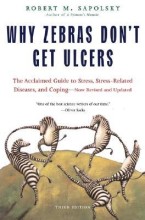Summary: Cognitive Behavioral Therapy
- This + 400k other summaries
- A unique study and practice tool
- Never study anything twice again
- Get the grades you hope for
- 100% sure, 100% understanding
Read the summary and the most important questions on Cognitive Behavioral Therapy
-
1 Basic Principles of Cognitive-Behavior Therapy .
This is a preview. There are 5 more flashcards available for chapter 1
Show more cards here -
On which two central beliefs is CBT based?
- Our cognitions have controlling influence on our emotions and behavior
- Our behaviour and actions can strongly affect our thought patterns and emotions
- Our cognitions have controlling influence on our emotions and behavior
-
Who was the first person to develop theories and methods for using cognitive and behavioral interventions for emotional disorders?
Aaron T. Beck -
What is meant with the negative cognitive triad, the concept of Beck in relation to depression?
Beck used a cognitive perspective for describing the symptoms of depression. In which depression was characterized by negative thinking style in three domains; the self, the world and the future, which are referred to as "the negative cognitive triad" -
Which three primary levels of cognitive processing have been identified by Beck and collegeas?
- Conscious
- Automatic thoughts
- Schema's
-
What is the description of the highest form of cognition "consciousness"?
State of awareness in which decisions can be made on a rational basis.- Allows us to monitor and assess interactions with the environment.
- Link past events with present experiences
- Enables us to control and plan future actions.
-
What are automatic thoughts?
Cognitions that stream rapidly from our minds, when in the midst of something, or in the presence of strong emotions. -
Persons with emotional disorders often have negative biased cogntiions, and cognitive errors, name two examples of cognitive errors.
1. All-or-nothing thinking
2. Personalization (relate external events to oneself) -
Which three main group of schemas can be identified?
- Simple schemas: rules about the
physical nature of theenvironment ,practical management ofeveryday activities. --> weinig effect in psychopathologie. VB: "educatie is belangrijk", "take shelter during athunderstorm " Intermediary beliefs andassumptions :conditional rules, such as if-thenstatements that influence ourself-esteem andemotion regulation . "ifI work hard, thenI can succeed"Core beliefs about the self: globalabsolute rules forinfterpreting environmental information related toself-esteem . "I'm a failure". I'munlovable , "i am a good friend"
People can haveadaptive andmaladaptive corebeliefs . - Simple schemas: rules about the
-
What are errors in atribution style often present in depressed persons?
1. Internal vs. External --> taking excessive blame
2. Global vs. Specific --> things I did have far-reaching global effects
3. Fixed vs. Changeable. --> troubling situations are fixed -
What is the positive self-serving bias?
The bias towards positive feedback. Gezonde individuen overschatten vaak de mate van positieve feedback, bij depressieve individuen wordt dit vaak onderschat.
- Higher grades + faster learning
- Never study anything twice
- 100% sure, 100% understanding
































